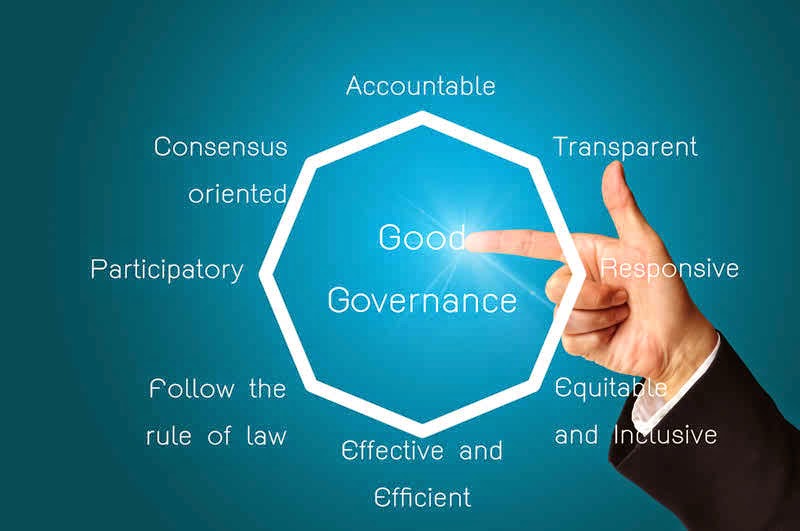Zelensky backtracks on law over anti-corruption bodies after protests – BBC

Report on Ukrainian Anti-Corruption Legislation and Alignment with SDG 16
Introduction
This report details recent legislative actions in Ukraine concerning the operational independence of its primary anti-corruption bodies. Ukrainian President Volodymyr Zelensky has submitted a new draft law aimed at restoring the autonomy of the National Anti-Corruption Bureau (Nabu) and the Specialised Anti-Corruption Prosecutor’s Office (Sap). This development is a direct response to significant domestic and international pressure and is critical to Ukraine’s progress towards fulfilling its commitments under the Sustainable Development Goals, particularly SDG 16: Peace, Justice and Strong Institutions.
Legislative Timeline and Institutional Impact
The recent events highlight the challenges in maintaining institutional integrity, a core tenet of SDG Target 16.6, which calls for the development of effective, accountable, and transparent institutions at all levels.
- Initial Legislation: A law was passed that placed Nabu and Sap under the control of the prosecutor general, an appointee of the president. The stated justification for this measure was the mitigation of alleged Russian influence within the agencies.
- Subsequent Backlash: This move triggered the largest nationwide protests since the 2022 invasion and drew serious expressions of concern from Ukraine’s Western partners, who viewed it as a threat to the rule of law.
- Corrective Draft Law: President Zelensky introduced a new bill intended to reverse the previous changes. The stated purpose of the new legislation is to safeguard the independence of Nabu and Sap. According to Nabu, the new bill successfully “restored all procedural powers and guarantees of independence.”
Domestic and International Stakeholder Reactions
The response to the legislative changes underscores the importance of robust anti-corruption frameworks for both national stability and international partnerships, aligning with SDG 17: Partnerships for the Goals.
Public and Political Response
- Nationwide protests erupted in several Ukrainian cities, with citizens demanding a veto of the law that curbed institutional independence.
- Commentators raised concerns about democratic backsliding and the potential undermining of the authority and effectiveness of Nabu and Sap.
- Opposition MP Oleksiy Goncharenko questioned the government’s legislative reversal, stating, “First we take it away, and then we say that it must be guaranteed. So why was all this necessary?”
International Partner Response
- The European Commission, noting Ukraine’s EU candidate status, reiterated that the rule of law and the fight against corruption are “core elements” of membership.
- The creation of Nabu and Sap in 2014-15 was a key requirement set by the European Commission and the International Monetary Fund, demonstrating the role of international cooperation in strengthening national institutions as per SDG Target 16.a.
- Following the introduction of the corrective bill, the European Commission stated it “welcomed” the decision and confirmed it was working with the Ukrainian government to ensure its concerns were addressed.
Analysis in the Context of Sustainable Development Goals
The legislative conflict and its resolution are directly relevant to Ukraine’s commitment to SDG 16. The independence of anti-corruption bodies is fundamental to achieving key targets within this goal.
- Target 16.5 (Reduce Corruption): The effectiveness of Nabu and Sap is paramount to Ukraine’s ability to substantially reduce corruption and bribery in all their forms. Any legislative action that compromises their independence directly threatens progress on this target.
- Target 16.6 (Effective Institutions): The public and international insistence on restoring the autonomy of these bodies demonstrates a collective demand for the effective, accountable, and transparent institutions envisioned by this target.
- Target 16.a (Strengthen National Institutions): The situation highlights the ongoing need for vigilance in protecting institutions established through international cooperation. The swift reaction from partners like the EU reinforces the global framework supporting the development of strong national governance structures.
Conclusion
The submission of a new draft law to reinstate the independence of Ukraine’s key anti-corruption agencies marks a significant step in reaffirming the nation’s commitment to democratic principles and good governance. This action, prompted by both domestic and international pressure, aligns Ukraine more closely with the objectives of SDG 16. Sustaining the autonomy and effectiveness of these institutions remains critical for reducing corruption, building public trust, and advancing Ukraine’s integration with the European Union.
SDGs Addressed in the Article
-
SDG 16: Peace, Justice and Strong Institutions
The article is centrally focused on the principles of SDG 16, which aims to “Promote peaceful and inclusive societies for sustainable development, provide access to justice for all and build effective, accountable and inclusive institutions at all levels.” The entire narrative revolves around the independence, effectiveness, and accountability of Ukraine’s anti-corruption institutions, namely the National Anti-Corruption Bureau (Nabu) and the Specialised Anti-Corruption Prosecutor’s Office (Sap). The debate over legislation that first curbed and then sought to restore their independence directly addresses the challenge of building and maintaining strong, impartial institutions. The article highlights the importance of the rule of law and the fight against corruption, which are core tenets of SDG 16, as emphasized by Ukraine’s Western partners and the European Commission.
Specific SDG Targets Identified
-
Target 16.5: Substantially reduce corruption and bribery in all their forms
This target is directly relevant as the article discusses the primary mandate of Nabu and Sap, which is to combat corruption in Ukraine. The legislative struggle described—initially bringing these bodies “under the control of the prosecutor general” and then submitting a new draft law to “reinstate the freedom of two anti-corruption bodies”—is a clear reflection of the national effort and challenges in reducing corruption. The concerns from international partners and the public protests underscore the perceived importance of these bodies in achieving Target 16.5.
-
Target 16.6: Develop effective, accountable and transparent institutions at all levels
The core issue discussed in the article is the effectiveness and accountability of Nabu and Sap. The initial law was criticized for undermining their authority, which would make them less effective. The subsequent backtracking by President Zelensky with a new bill aims to “safeguard the independence” of these bodies, which is a prerequisite for them to be effective and accountable. The public protests, described as the “largest… since the start of Russia’s full-scale invasion,” were a direct public demand for accountable and independent institutions, showing that citizens were worried the law would “severely undermine the Nabu and Sap’s authority and effectiveness.”
-
Target 16.a: Strengthen relevant national institutions, including through international cooperation, for building capacity… to combat… crime
The article explicitly mentions the role of international cooperation in establishing Ukraine’s anti-corruption framework. It states that “The creation of Nabu and Sap in 2014-15 was one of the requirements set by the European Commission and the International Monetary Fund.” This demonstrates how international partnership was leveraged to strengthen these national institutions. Furthermore, the continued engagement from the European Commission, which “welcomed” the new draft law and stated it was working with the Ukrainian government to ensure its concerns “are indeed taken into account,” exemplifies the ongoing international cooperation mentioned in Target 16.a.
Implied Indicators for Measuring Progress
-
Legislative and Institutional Frameworks
The primary indicator discussed is the legal status and independence of anti-corruption bodies. The submission of a “draft law to reinstate the freedom” of Nabu and Sap serves as a direct indicator of the government’s commitment to strengthening its institutional framework against corruption. The content of this law, which Nabu said “restored all procedural powers and guarantees of independence,” is a qualitative measure of progress.
-
Public Engagement and Perception
The article points to nationwide protests as a powerful, albeit informal, indicator. The fact that “Thousands of people gathered in streets and squares across Ukraine” to protest the initial law indicates a high level of public awareness and demand for institutional integrity. This public mobilization can be seen as an implied indicator of the population’s lack of confidence in institutions perceived as politically controlled and their support for independent ones.
-
International Assessment and Cooperation
The reactions and statements from international partners serve as an external assessment indicator. The article notes that “Kyiv’s Western partners had also expressed serious concerns” and that the European Commission warned that the “rule of law and the fight against corruption were ‘core elements’ of membership to the bloc.” The subsequent approval from the Commission, which “welcomed” the corrective action, acts as an indicator of alignment with international standards for institutional strength and accountability.
SDGs, Targets, and Indicators Analysis
| SDGs | Targets | Indicators (Mentioned or Implied in the Article) |
|---|---|---|
| SDG 16: Peace, Justice and Strong Institutions | 16.5: Substantially reduce corruption and bribery in all their forms. | The existence and operational independence of specialized anti-corruption bodies (Nabu and Sap). |
| SDG 16: Peace, Justice and Strong Institutions | 16.6: Develop effective, accountable and transparent institutions at all levels. | – The passing of legislation that guarantees the independence and procedural powers of institutions. – Level of public protest against measures that undermine institutional independence. – Public perception of institutional authority and effectiveness. |
| SDG 16: Peace, Justice and Strong Institutions | 16.a: Strengthen relevant national institutions, including through international cooperation. | – The establishment of national institutions (Nabu, Sap) as a requirement of international partners (European Commission, IMF). – Statements and assessments from international partners (e.g., European Commission) regarding the country’s adherence to rule of law and anti-corruption standards. |
Source: bbc.com

What is Your Reaction?
 Like
0
Like
0
 Dislike
0
Dislike
0
 Love
0
Love
0
 Funny
0
Funny
0
 Angry
0
Angry
0
 Sad
0
Sad
0
 Wow
0
Wow
0











































































